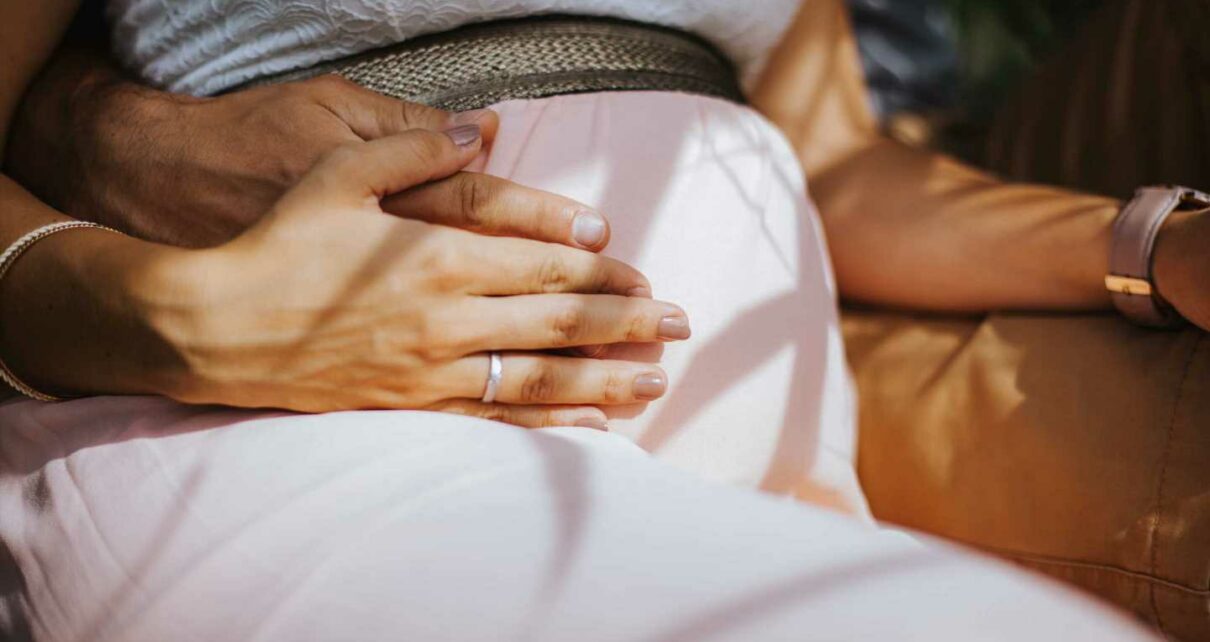THOUSANDS of new mums on maternity leave will get a bumper pay boost from tomorrow – here's who qualifies.
Financial support for new mothers taking time off to care for their new-born will rise by £600 from tomorrow (Monday, April 10).

The government is boosting Maternity Allowance payments to help new mums cope with the rising cost of living.
The benefit provides a safety net for women before and after childbirth for up to 39 weeks and is designed to cover those who do not qualify for Statutory Maternity Pay – usually because they are on low wages or are self-employed.
Those claiming Maternity Allowance will see their standard rate, worth up to £156.66 a week, rise by 10.1% on Monday.
The payment boost is worth £15.82 a week or £617 over the 39 weeks in which you can claim the cash.
Read more in money

Full list of 52 bank branches closing in DAYS – is yours on it?

Shoppers are rushing to B&M to buy kitchen gadget that scans for £50 less
It means the new weekly rate will hit £172.48.
The payment boost is expected to benefit around 40,000 mums through their maternity leave this year.
DWP minister Viscount Younger of Leckie said: "We want every child to have a good start in life, which is why we are increasing our support for mums.
"This builds on our extension of free childcare for working parents from this summer, alongside an increase to the Universal Credit childcare cost cap and further help with upfront payments.
Most read in Money

Martin Lewis issues warning to British Gas customers with smart meters

My neighbour left me a petty note accusing me of spoiling the road – I'm fuming

Big card shop shuts another store TODAY following a string of closures

Major high street brand is opening new stores TODAY – is one coming near you?
"These changes will help parents progress in work and earn a better living to support their family."
Working mothers receiving the standard rate of Statutory Maternity Pay from their employer saw their payments rise by 10.1% on April 2.
But here's everything you need to know about Maternity Allowance as well as how to apply.
Who is eligible for Maternity Allowance?
You could be eligible for Maternity Allowance if you're not entitled to maternity pay, you're self-employed or you've recently stopped working.
The following must apply within the previous 66 weeks of your due date too:
- You must have been either employed or self-employed for at least 26 weeks
- You must have been earning (or classed as earning) £30 a week or more in at least 13 weeks – the weeks do not have to be together
If you're self-employed you must have paid Class 2 National Insurance for at least 13 of the 66 weeks to get the full amount of £172.48 a week.
If this isn't the case, you will still get £27 a week for 39 weeks.
If none of the above applies, you may still be able to get Maternity Allowance payments worth £27 paid for 14 weeks.
You could get this if within the previous 66 weeks of your due date, and for at least 26 weeks, you were:
- Married or in a civil partnership
- Not employed or self-employed
- Take part in the self-employed work of a partner or civil spouse
- Doing work for the business which is unpaid
- Married or civil partnered to someone who is registered self-employed with HMRC and should pay Class 2 National Insurance
- Not eligible for Statutory Maternity Pay or the higher amount of Maternity Allowance
You can check your eligibility for Maternity Allowance or Statutory Maternity Pay using the calculator on Gov.UK.
If you can't claim maternity benefits you might be able to get Universal Credit – here's how to claim.
How much is Maternity Allowance?
Maternity Allowance is worth different amounts depending on your situation. The following rates will apply from Monday, April 10:
- 90% of your average weekly earnings (before tax) up to a maximum of £172.48 a week for 39 weeks
- £27 a week for 39 weeks, or
- £27 a week for 14 weeks.
How do I claim Maternity Allowance?
You can claim Maternity Allowance once you've been pregnant for 26 weeks.
Payments usually start 11 weeks before your baby is due and is paid every two or four weeks.
Mothers can still launch claims within three months after giving birth and will still be entitled to the full 39 weeks' worth of payments.
You should be aware that the money you get from Maternity Allowance can affect other benefits you get, including:
- Universal Credit
- Council tax reduction
- Housing benefit
- Employment and support allowance (ESA)
- Income support
- Jobseeker’s allowance (JSA) – this will stop if you get Maternity Allowance
- Bereavement benefits
- Carer's allowance
It could also affect the amount you get because of the benefit cap.
If you're eligible, to get the money you need to fill in the Maternity Allowance (MA1) claim form.
You can do this online, or by printing it out and sending it by post – the address is on the form.
You’ll need to give information about your employment in the 66 weeks before your baby is due called the "test period".
You will also need to include other documents when you send in your claim form:
- Proof of income
- Proof of a due date and birth
- Additional information
You should get a decision on your claim within 20 working days.
If you’re eligible, a form will be sent to you confirming your entitlement and asking you to confirm your last day of employment before leaving.
Other help for soon-to-be mums
You could also be eligible for the Sure Start Maternity Grant, which offers soon-to-be-parents in England, Wales and Northern Ireland a one-off upfront sum of £500.
You can get prescriptions and dental treatment for free while you're pregnant and for 12 months after your baby's due date.
Ask your doctor or midwife for a maternity exemption certificate (MATEX) to claim the free care.
Read More on The Sun

Amy Childs gives birth to twins after ‘long and exhausting’ labour

People are only just realising why postal workers write ‘P’ on letters
Under the Healthy Start programme, you may be entitled to free milk, infant formula or fruit and veg if you're at least 10 weeks pregnant or you have a child under four and you're on certain benefits.
And here are nine ways parents can get free food, nappies and essentials for babies if they are struggling.
Source: Read Full Article

